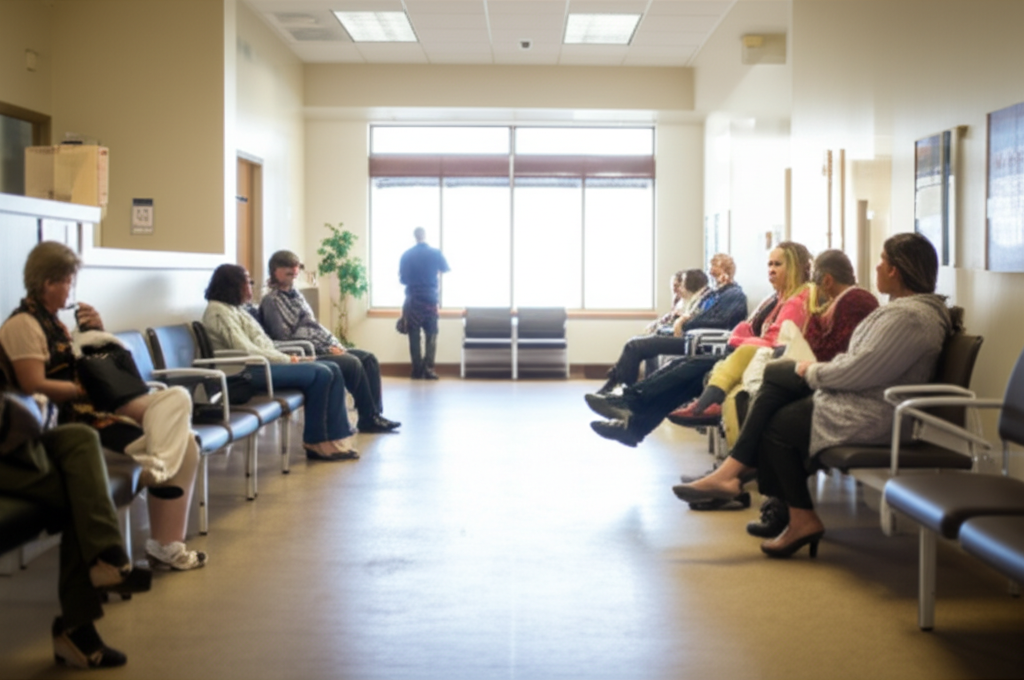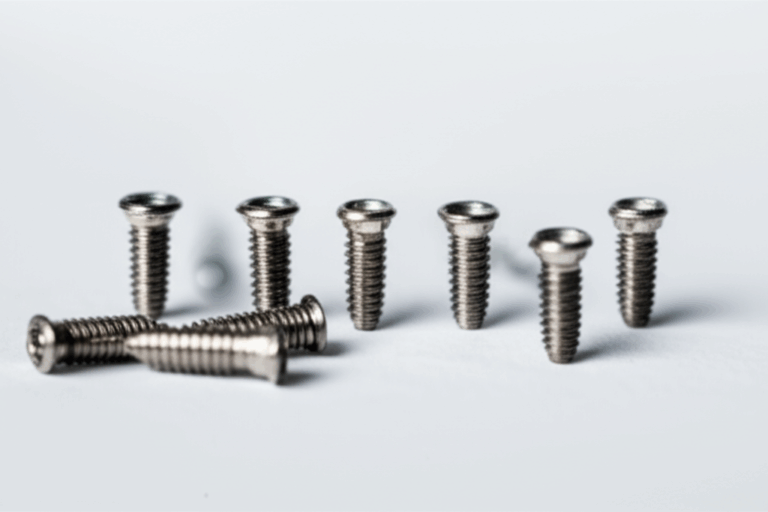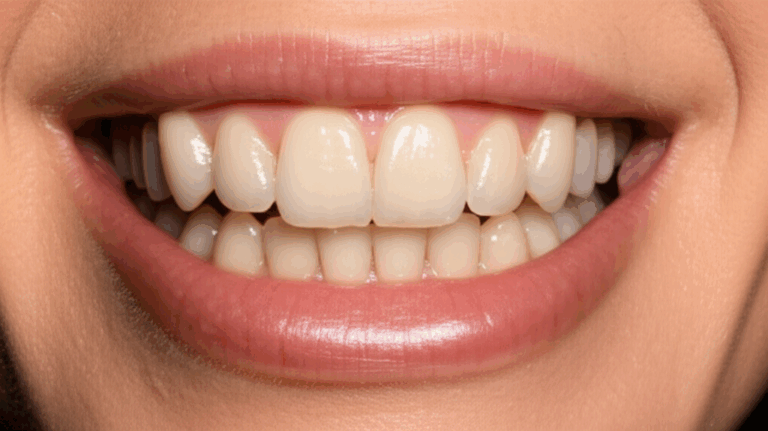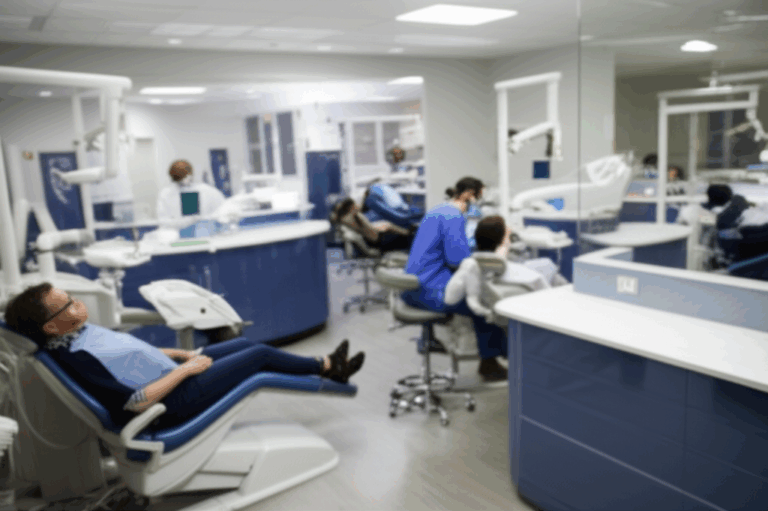
Do Urgent Cares Have Dentists? Your Straightforward Guide to Dental Emergencies
That throbbing pain in your tooth won’t let you sleep. Maybe half your face looks puffy and you’ve got work in the morning. Or your child chipped a tooth at soccer practice, and your regular dentist’s office is already closed. So you start wondering: Can urgent care centers help with dental emergencies? Do they actually have dentists on staff? If you’re confused or worried and searching for answers, you’re definitely not the only one.
A lot of people share these problems every day, especially when pain or worry hits outside of the usual office hours. Let’s clear things up and walk you through exactly what urgent care can (and can’t) do for dental emergencies—and what to do when your tooth problem just can’t wait.
In This Article
- Can You See a Dentist at Urgent Care?
- What Urgent Care Can Do for Your Dental Problem
- What Urgent Care Can’t Do (And Why)
- When It Makes Sense to Visit Urgent Care for Dental Issues
- Where To Go for Real Dental Emergencies
- Common Dental Emergencies and How Best to Get Help
- Preventing the Next Dental Emergency: Healthy Habits That Matter
- Your Empowered Dental Emergency Action Plan
- Frequently Asked Questions about Dental Care at Urgent Care
1. Can You See a Dentist at Urgent Care?
Let’s give you a clear, honest answer: No, most urgent care centers do not have dentists on staff. This is one of the most common misunderstandings, and it’s easy to see why. “Urgent care” seems to promise quick fixes for almost anything. You come in with a sore throat or twisted ankle, and you leave with help. But for teeth? It’s different.
Why is this so unclear? Urgent cares are run by doctors, nurse practitioners, and physician assistants. They’re very good at treating sickness, fevers, injuries, and other aches and pains. But they’re not dentists and don’t have the right training or equipment to do real dental work—like fillings, extractions, or fixing broken teeth. They don’t have dental drills, special dental X-rays, or dental chairs.
But does that mean urgent care is useless for toothaches or emergencies? No—it can still help in a pinch. Sometimes, urgent care can be a helpful “bridge” until you see a real dentist.
2. What Urgent Care Can Do for Your Dental Problem
You might ask, If there’s no dentist, can urgent care help at all? Here’s exactly what to expect from urgent care if your teeth are hurting.
Pain Relief: Helping You Feel Better
If you come into urgent care with a bad toothache, swelling, or sharp pain, the first thing they do is try to help with the pain. This can mean:
- Giving you a prescription for pain medicine: Over-the-counter stuff like ibuprofen or acetaminophen, or sometimes something stronger if it’s really bad.
- Advising you about pain at home: They can give you tips for icing the area or using safe, quick fixes.
Infection Control: Stopping Things From Getting Worse
If you have swelling, a fever, or a dental abscess (an infection around a tooth or in your gums), urgent care can:
- Give you antibiotics: If the infection isn’t too bad, they’ll give you a prescription to keep it from spreading. (Important note: antibiotics don’t fix the problem—they just calm things down until you see a dentist.)
- Look for bigger problems: If the infection is really serious—big swelling, trouble swallowing, or a high fever—they’ll send you quickly to the ER.
Swelling and Simple Checks
It’s not always easy to know if swelling is from a dental infection, a sinus infection, or an injury. Urgent care can:
- Check your overall health: They’ll look for signs the infection might be spreading (like fever, really bad infection, or trouble breathing).
- Order simple X-rays—not usually the ones for teeth: Most urgent cares can do chest or face X-rays to check for breaks or serious infections, but not the dental X-rays used for teeth.
- Prescribe medicine for swelling: This helps with pain and swelling.
Referral to a Dental Professional
Just as important as prescriptions, urgent care can act as your connector. They can:
- Give you a referral for a dentist or dental specialist, like an oral surgeon or emergency dentist.
- Tell you what to do next or if you need to go to the ER right away.
Think of urgent care like a pit stop—helpful, sometimes very helpful, but not the last stop if your tire is really flat.
3. What Urgent Care Can’t Do (And Why)
Let’s make it simple: Here’s what urgent care centers can’t do for dental problems.
Dental Procedures
Urgent care teams can’t:
- Take out teeth (pull teeth)
- Put in fillings, crowns, or bridges
- Fix broken or chipped teeth
- Do root canals
- Drain dental pus pockets (except maybe a tiny one on the gum)
- Treat gum disease or big mouth sores
- Work on braces or retainers
No Dental Tools or Training
Urgent cares don’t have:
- Dental chairs or the bright lights
- Dental drills, mirrors, cleaning tools, or suction
- Dental X-rays or special pictures to see teeth or tooth roots
Even though they have great healthcare workers, remember: Medical doctors aren’t trained to do dental work, and dentists aren’t usually in urgent care clinics.
Only Temporary Fixes
Whatever urgent care does is temporary. Their goal is to make sure things don’t get worse and help ease your pain or risk. But you’ll still need to see a dentist or dental specialist to truly fix the problem—like a filling, root canal, or something else.
4. When It Makes Sense to Visit Urgent Care for Dental Issues
So, when should you go to urgent care? Here are real situations where it can help:
Big Infections With Risk of Spreading
If you have:
- Bad swelling in your face or neck
- High fever
- Trouble breathing or swallowing
- Hot, red, spreading skin from a dental abscess
Go right to urgent care (or the ER if you feel really sick or can’t breathe well). They’ll decide if you need antibiotics or if you should be in the hospital.
Really Bad Pain
Strong tooth pain that keeps you up at night or makes it hard to eat? If the dentist isn’t open or you can’t get in for a bit, urgent care can at least give you pain medicine for now.
Face or Jaw Injury
If you’ve fallen, been hit, or think your jaw is broken, urgent care can check you out and do basic X-rays. Their goal is to see if you have a break, risk of bad infection, or other big problems.
Feeling Sick From a Dental Problem
Sometimes, dental infections make your whole body sick (sepsis, for example). Urgent care staff can spot this and help you get emergency help if needed.
5. Where To Go for Real Dental Emergencies
When is urgent care not enough? Here’s where you really need to go.
A. Emergency Dentist
For almost any dental emergency, an emergency dentist is your best choice. They’re ready for tooth pain, lost crowns, tooth injuries, and more.
How to Find One
- Search online for 24-hour emergency dentist or “dental emergency clinic near me.”
- Check for dentists who are open during weekends and holidays.
- Try dental school clinics or hospital dental clinics.
What They Handle
- Bad tooth and nerve pain
- Root canals or pulling a tooth that hurts
- Draining infections around teeth
- Fixing broken, chipped, or knocked-out teeth
- Fixing lost fillings or crowns
B. Hospital Emergency Room (ER)
Go to the ER for life-threatening dental problems only—like:
- Bad, unstoppable bleeding in your mouth
- Major injury to your face, jaw, or head (especially with knocked out or if you pass out)
- Swelling that makes breathing or swallowing hard
Remember, ERs (like urgent cares) usually don’t have a dentist available. They help you stay safe—treating infection, pain, or big trauma to keep things from getting worse.
C. Your Regular Dentist
This is still the best choice for regular and sometimes urgent dental problems if they’re open. Lots of offices have after-hour phones so you can leave a message for emergencies. This gets you seen as soon as possible.
6. Common Dental Emergencies and How Best to Get Help
Let’s go over the usual dental emergencies and where to get help.
Toothache
Go to: Dentist or Emergency Dentist
If the pain is really bad and your dentist is closed, urgent care can give you pain medicine and maybe antibiotics. You still need a dentist to fix the cause.
Dental Abscess (Painful Swelling & Infection)
Go to: Dentist or Emergency Dentist as soon as possible
Urgent care can give antibiotics for short-term help, but only a dentist can drain and treat the infection. Not getting dental care can lead to big problems.
Broken or Chipped Tooth
Go to: Dentist or Emergency Dentist
Urgent care can help with bleeding and pain, but can’t repair the tooth.
Lost Filling or Crown
Go to: Dentist or Emergency Dentist
Painful, but not deadly. Urgent care can suggest a quick fix and give pain medicine.
Knocked-Out Tooth
Go to: Emergency Dentist right away
Every minute counts—getting to a dentist in 30–60 minutes may save the tooth.
Face or Jaw Injury
Go to: ER or Urgent Care first, then Dentist or Oral Surgeon
Falls or hits to the face causing pain, trouble opening your mouth, or a weird jaw shape need quick checks for breaks.
7. Preventing the Next Dental Emergency: Healthy Habits That Matter
Nobody wants to end up at urgent care with a mouth problem. The smartest move—no surprise—is prevention.
Easy Steps:
- See your dentist often: Most people need checkups every six months.
- Brush and floss every day: Good mouth care catches small problems early.
- Wear mouthguards for sports: This saves teeth from accidental injury.
- Don’t ignore little problems: Pain, swelling, or an odd spot can be early warning signs.
- Control other health problems: Diabetes, dry mouth, and immune problems can raise your risk.
- Limit sugary and sour foods and drinks: These can cause cavities and tooth wear.
With these habits, you can avoid sudden pain, expensive emergencies, and last-minute panic.
8. Your Empowered Dental Emergency Action Plan
If you have a dental emergency right now, here’s a plan for peace of mind:
1. Check your symptoms:
- Can’t breathe, swallow, or major swelling? Go to the ER.
- Bad pain, swelling, mild fever? Urgent care can help with the pain for now.
2. Call your dentist (or emergency dentist):
- Leave a message for a call back.
- Check online for appointments or emergency numbers.
- For lost fillings or crowns, keep anything that fell out clean and take it with you.
3. Safe home steps:
- Take over-the-counter pain medicine as the directions say.
- Rinse with warm salty water for a mild problem.
- Put ice on the outside for swelling.
4. Plan for a dental visit soon:
- Urgent care can help for now—but a dentist must fix the main problem.
5. Know your payment options:
- Community health or dental school clinics often cost less if you don’t have dental insurance.
9. Frequently Asked Questions about Dental Care at Urgent Care
Q: Is urgent care cheaper than an emergency room for dental pain?
A: Usually, yes. Urgent care is almost always less expensive than a hospital ER for simple pain medicine or a prescription. But, it’s not a fix for the real problem—a dentist is still needed.
Q: Will urgent care give antibiotics for a tooth infection?
A: Yes, often they will—especially with swelling or infection. But it’s only a quick fix. Dental infections often come back strong if you don’t see a dentist soon.
Q: Do walk-in clinics or urgent care centers ever have a dentist on staff?
A: Almost never. Sometimes, a hospital urgent care may have access to dental residents, but this is rare. Call ahead if you’re hoping for real dental treatment.
Q: Can urgent care pull a tooth or do a filling?
A: No, they don’t have the tools or training.
Q: How do I find an emergency dentist near me?
A: Try looking online for “emergency dentist,” check hospital dental clinics, or dental society websites. Some dental labs, like china dental lab, work closely with dentists and might be able to point you to good clinics nearby.
Data and Numbers: Why This Matters
Did you know that every year over 2 million Americans go to the ER for dental problems? Most only get painkillers or antibiotics, not a real fix. AHRQ says these visits cost over $1.6 billion per year and most problems could be solved in a dental office for less money and time.
Why don’t more people see dentists first? There are a few real reasons:
- No dental insurance: Many adults don’t have coverage, so they avoid dentists.
- Timing: Dentists often work regular hours, so you’re stuck on weekends or nights.
- High cost: Some people try urgent care because they think it will be cheaper.
Here’s the big problem: Nearly 80–90% of ERs don’t have a dentist on staff, and even fewer urgent cares do. Both focus on helping you right away—not on lasting dental treatment. Lots of people are back to the ER weeks later since the main problem still isn’t fixed.
The Bottom Line: What You Need to Know
Here’s the quick summary so you can act with confidence:
- Urgent care centers do NOT have dentists, but can help with temporary pain relief or medicine if you have dental pain or infection.
- They can’t do dental work like fillings, pulling teeth, or crowns.
- For most real dental emergencies, see a dentist or emergency dental clinic as soon as possible.
- Go to the ER for very serious cases (trouble breathing, big injury).
- Use urgent care as a short-term help for pain or infection when a dentist isn’t open, but follow up soon with a real dental visit.
- Avoid future emergencies by visiting your dentist often, keeping your teeth clean, and getting help early if something feels wrong.
Every dental problem feels urgent, but you don’t have to handle it alone. Knowing where to go for help makes things much less scary. And remember, good mouth care and regular dentist visits are the best ways to avoid dental trouble in the first place.
If you ever need more in-depth dental solutions—from advanced work at a digital dental lab to special cosmetic work at a veneer lab—building a good relationship with a local dentist is always your best first step.
Your smile is important. So next time you have a dental problem, take a moment, check your symptoms, and move ahead with a clear plan.
Sources:
- Agency for Healthcare Research and Quality (AHRQ) – ER Dental Visits Data
- American Dental Association (ADA)
- American Academy of Urgent Care Medicine (AAUCM)
- Journal of the American Dental Association (JADA)
- Kaiser Family Foundation – Dental Coverage
Medically checked by a licensed dental professional. This article is for learning only and not meant to be used instead of real diagnosis or treatment. If you have a dental emergency, call your dentist or nearest urgent care/ER right away.








